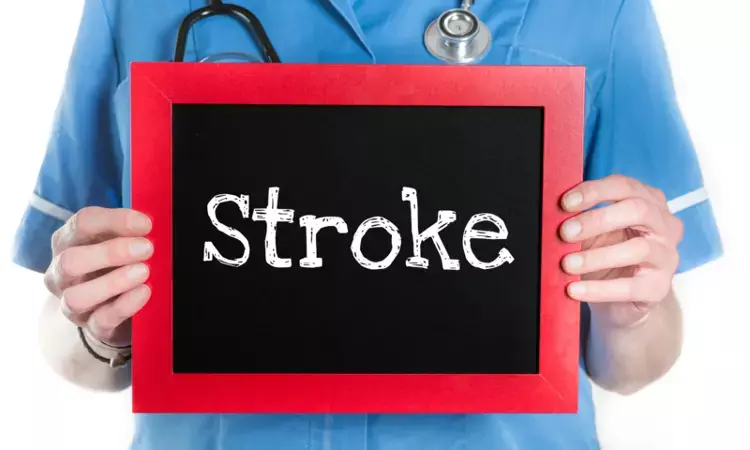- Home
- Medical news & Guidelines
- Anesthesiology
- Cardiology and CTVS
- Critical Care
- Dentistry
- Dermatology
- Diabetes and Endocrinology
- ENT
- Gastroenterology
- Medicine
- Nephrology
- Neurology
- Obstretics-Gynaecology
- Oncology
- Ophthalmology
- Orthopaedics
- Pediatrics-Neonatology
- Psychiatry
- Pulmonology
- Radiology
- Surgery
- Urology
- Laboratory Medicine
- Diet
- Nursing
- Paramedical
- Physiotherapy
- Health news
- Fact Check
- Bone Health Fact Check
- Brain Health Fact Check
- Cancer Related Fact Check
- Child Care Fact Check
- Dental and oral health fact check
- Diabetes and metabolic health fact check
- Diet and Nutrition Fact Check
- Eye and ENT Care Fact Check
- Fitness fact check
- Gut health fact check
- Heart health fact check
- Kidney health fact check
- Medical education fact check
- Men's health fact check
- Respiratory fact check
- Skin and hair care fact check
- Vaccine and Immunization fact check
- Women's health fact check
- AYUSH
- State News
- Andaman and Nicobar Islands
- Andhra Pradesh
- Arunachal Pradesh
- Assam
- Bihar
- Chandigarh
- Chattisgarh
- Dadra and Nagar Haveli
- Daman and Diu
- Delhi
- Goa
- Gujarat
- Haryana
- Himachal Pradesh
- Jammu & Kashmir
- Jharkhand
- Karnataka
- Kerala
- Ladakh
- Lakshadweep
- Madhya Pradesh
- Maharashtra
- Manipur
- Meghalaya
- Mizoram
- Nagaland
- Odisha
- Puducherry
- Punjab
- Rajasthan
- Sikkim
- Tamil Nadu
- Telangana
- Tripura
- Uttar Pradesh
- Uttrakhand
- West Bengal
- Medical Education
- Industry
VKA better than rivaroxaban as an anticoagulant in RHD patients with AF, INVICTUS study

Most of the trials showing superiority or non-inferiority of DOACs over vitamin K antagonist (VKAs) have excluded patients with valvular AF. Therefore, in patients with moderate to severe rheumatic MS with AF, the anticoagulation strategy is still VKA.
Recently conducted INVICTUS trial aimed to clarify whether a DOAC can or cannot be used in this condition, in relation to stroke and death risk keeping in mind the associated bleeding risk. The trial results show that in comparison to DOAC-rivaroxaban, VKA therapy led to a lower rate of a composite of cardiovascular events or death, without a higher rate of bleeding.
As of today, the general consensus is that patients with AF and clinically significant valvular heart disease (defined as the use of prosthetic mechanical heart valves or moderate-to-severe mitral stenosis) should be treated with VKAs, whereas all other patients with AF and mild-to-moderate native valvular heart disease, bioprosthesis, or mitral-valve repair could be treated with DOACs or VKAs in terms of stroke prevention.
Th INVICTUS trial examined whether treatment with one of the DOACs, rivaroxaban would be noninferior to VKA therapy with regard to efficacy (a composite of stroke, systemic embolism, myocardial infarction, and death from vascular or unknown causes) and safety (major bleeding).
The trial involved 4565 patients with AF and associated RHD, 85% of whom had mitral-valve stenosis (which was moderate-to-severe in 82% of the overall population and severe on echocardiography in 27%). Higher rates of death and stroke (especially ischemic stroke) were seen in the rivaroxabangroup than in the vitamin K antagonist group, and there was no significant difference in the rate of bleeding.
Why did rivaroxaban fail to meet the non-inferiority margin?
The INVICTUS investigators highlight that the patients in the vitamin K antagonist group had more physician interactions than those in the rivaroxaban group, which could have resulted in better overall care and fewer strokes and deaths. Improved quality of anticoagulation control (as reflected by time in the therapeutic range) is also a major determinant of thrombotic and bleeding events in patients receiving a vitamin K antagonist.
"Adherence to and persistence with anticoagulation therapy also influence outcomes, and the incidence of permanent discontinuation of trial medication was higher with rivaroxaban than with a vitamin K antagonist at all visits" adds Gregory Y.H. Lip, M.D. in an accompanying editorial.
What's the take home message for physicians and cardiologists?
"To improve outcomes in these patients, we therefore need to look beyond anticoagulation alone or beyond a type of anticoagulation drug per se. Indeed, a one-size-fits-all approach may not be appropriate", writes Lip. "There has been a move toward a more holistic or integrated care approach to the management of atrial fibrillation, summed up as the ABC (Atrial Fibrillation Better Care) pathway: avoidance of stroke and the use of anticoagulation; better management of symptoms with patient-centered, symptom-directed decisions on rate or rhythm control; and cardiovascular and coexisting-condition risk management, including attention to lifestyle and psychological factors."
To conclude, the results of this trial suggest that VKA therapy may be the preferred oral anticoagulation strategy over rivaroxaban in patients with atrial fibrillation associated with RHD; its use is associated with lower mortality and a lower risk of stroke.
Source: NEJM
1. DOI: 10.1056/NEJMoa2209051
2. DOI: 10.1056/NEJMe2210187
MBBS, MD , DM Cardiology
Dr Abhimanyu Uppal completed his M. B. B. S and M. D. in internal medicine from the SMS Medical College in Jaipur. He got selected for D. M. Cardiology course in the prestigious G. B. Pant Institute, New Delhi in 2017. After completing his D. M. Degree he continues to work as Post DM senior resident in G. B. pant hospital. He is actively involved in various research activities of the department and has assisted and performed a multitude of cardiac procedures under the guidance of esteemed faculty of this Institute. He can be contacted at editorial@medicaldialogues.in.
Dr Kamal Kant Kohli-MBBS, DTCD- a chest specialist with more than 30 years of practice and a flair for writing clinical articles, Dr Kamal Kant Kohli joined Medical Dialogues as a Chief Editor of Medical News. Besides writing articles, as an editor, he proofreads and verifies all the medical content published on Medical Dialogues including those coming from journals, studies,medical conferences,guidelines etc. Email: drkohli@medicaldialogues.in. Contact no. 011-43720751


